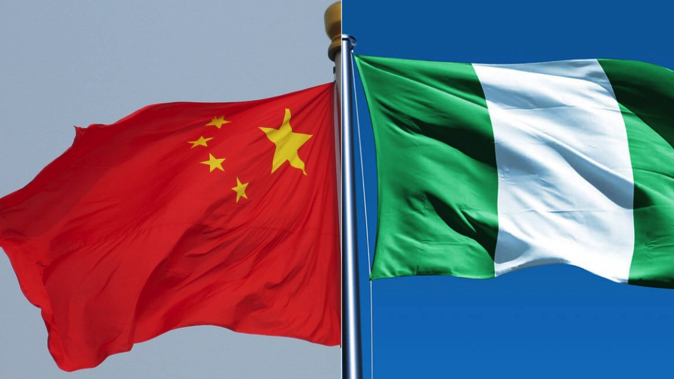News
KPMG to Spend $1.5bn to Accelerate Solutions for Environmental, Social, Governance Issues

KPMG International Limited, an Anglo-Dutch multinational professional services network has announced that it plans to spend more than $1.5 billion over the next three years specifically to focus on the Environmental, Social and Governance (ESG) change agenda.

A statement by the group said the collective investment would focus on training and expanding KPMG’s global workforce, harnessing data, accelerating the development of new technologies, and driving action through partnerships, alliances and advocacy.
“The ESG strategy is designed to support KPMG firms’ clients in making a positive difference. Importantly, this strategy is underpinned by KPMG’s recognition of its responsibility to improve its impact on the world and the ESG commitments outlined in KPMG: Our Impact Plan, “KPMG said.
The statement also noted that the key to the transformation would be embedding ESG in the organisation and client solutions to drive measurable change.
KPMG said the new global ESG strategy focuses on five priority areas such as solutions, talents, supporting developing nations, collaborations and alliances and others.
In his comments, the Global Chairman, KPMG, Bill Thomas, noted that what worked for the company and other businesses in the past would not work in the future.
He explained that the world faces crises on multiple fronts, which is why they are putting the environmental, social and governance agenda at the heart of everything they do.
He further remarked that ESG would be the watermark running through their global organization; from empowering people to become agents of positive change, to the services with clients and partnerships with critical stakeholders.
He added that KPMG has the global scale, expertise, technology, and relationships that give them the ability and responsibility to use their position to provide solutions and services to overcome the challenges facing our planet and society.
The Global Head of ESG, Richard Threlfall, said: “It is incumbent on all of us as businesses and as individuals to play our part in tackling the challenges that threaten the future of our planet and the quality of life of people throughout the world. Our global ESG strategy will help equip our people to make a difference, as well as mobilize data and technology in support.
But we also recognize that the changes society is demanding will be realized most effectively through open collaboration based on trust, and we will continue to seek out opportunities to partner with other organizations that share our sense of purpose to enable a better future for everyone, everywhere.”
Jane Lawrie, global head of Corporate Affairs, KPMG, commented: “We know that KPMG and our profession have an important and pressing opportunity to accelerate the change needed for a sustainable future; that change starts with us. Our Impact Plan, launched in January, lays out how we intend to change our actions and commits to report against our progress so we can be held to account.
“The ESG agenda is as important to our people as it is to clients; these significant changes outlined today further reinforce KPMG’s purpose to Inspire Confidence and Empower Change and act as a north star for how we grow the organization.”
On his part, the Chairman, KPMG Africa, Kunle Elebute, added: “ESG plays a significant role in creating progressive, healthy, diverse and resilient communities for this generation and others to come.”
KPMG in the statement said, “Five newly dedicated Hubsare to be established to provide world-class expertise and solutions on key ESG issues, these will focus on: Global Decarbonization, helping large multinational businesses meet their net-zero commitments and plan their decarbonization journey, and Global ESG Advisory, backed by Advisory teams from KPMG firms, offering market-leading ESG expertise including leadership on societal issues and solutions. Three KPMG Regional ESG Hubs will also be established in Europe, Asia Pacific and the Americas to allow clients easy access to world-class insights and expertise across the ESG agenda.
“KPMG will invest in its leading climate and ESG solutions and technologies, including Climate IQ, a digital tool that helps clients identify opportunities and risks arising from climate change.
“To complement the technological investments, the global organization will also expand its workforce, both for ESG advisory work and to provide assurance on ESG disclosures. Additionally, KPMG will develop its proprietary audit workflow technologyto enable delivery of ESG assurance with the same quality and rigor that KPMG firms apply to financial audit work.
“ESG training will be provided to all of the KPMG organization’s 227,000 people to ensure that everyone is empowered to be an agent of positive change. As part of this training, KPMG is working with two leading global academic institutions, University of Cambridge Judge Business School and NYU Stern Executive Education.”
News
China Expands Zero-Tariff Trade for Nigeria, 52 Other African Nations

China has announced the full implementation of a zero-tariff scheme for 53 African countries, including Nigeria, under the Changsha Declaration, further strengthening economic ties within the Forum on China-Africa Cooperation (FOCAC).

The announcement, made by China’s Ministry of Foreign Affairs, followed a high-level meeting between Chinese officials and African foreign ministers in Changsha. The initiative stems from commitments made during the 2024 Beijing Summit of FOCAC, which focused on building a stronger China-Africa partnership in a rapidly evolving global landscape.
According to a statement released after the meeting, the representatives of China, 53 African nations, and the African Union Commission affirmed their commitment to creating an “all-weather China-Africa community with a shared future for the new era.”
The declaration highlighted the rising influence of the Global South and underscored the importance of collaboration in advancing development, multilateralism, and equitable global governance. It also criticized growing unilateralism, protectionism, and economic coercion, calling on countries, particularly the United States, to resolve trade disputes through mutual respect and dialogue.
The ministry stressed that African nations face pressing economic and developmental challenges that demand urgent international attention. It urged for increased development assistance, rather than cuts, to support poverty reduction and infrastructure growth across the continent.
In a significant move, China committed to expanding zero-tariff treatment to 100 percent of tariff lines for all 53 African countries with diplomatic relations with Beijing, excluding Eswatini, which has no official diplomatic ties. This will allow greater access for African goods to the Chinese market.
For Africa’s least developed countries, the plan includes enhanced market access measures, streamlined inspection and customs procedures, and increased technical training and trade facilitation.
Additionally, China pledged support for the African Union’s Agenda 2063, with a focus on modernization and sustainable development.
The Chinese government also announced plans to implement the China-Africa Economic Partnership for Shared Development, deepen cooperation in green industries, e-commerce, science and technology, artificial intelligence, finance, and legal frameworks.
The statement also reaffirmed plans to strengthen people-to-people ties, including initiatives like the “2026 Year of People-to-People Exchanges.”
In September 2024, President Bola Tinubu signed five memoranda of understanding during a meeting with Chinese President Xi Jinping.
Speaking at the Beijing summit, Tinubu described the China-Africa relationship as a “true testament” to the strength of mutual respect and cooperation.
Foreign Affairs Minister Yusuf Tuggar later confirmed that the agreements signed with China are in various stages of implementation.
News
Aliko Dangote Signs out @ Dangote Sugar Refinery as Chairman

In a major leadership transition, Dangote Sugar Refinery Plc (DSR) has announced the retirement of Aliko Dangote, its founder and chairman, from the Board, effective June 16, 2025.

Aliko Dangote
The announcement was made in a regulatory filing with the Nigerian Exchange Ltd on June 11, highlighting the company’s commitment to sound corporate governance and structured succession planning.
In a statement signed by Mrs. Temitope Hassan (FCIS), company secretary and legal adviser, the Board praised Dangote’s extraordinary leadership and lasting contributions to the company.
“Alhaji Aliko Dangote is one of the founding Directors of the Company and has served with exceptional leadership, integrity, and vision since 2005,” the statement read.
“Under his stewardship, Dangote Sugar Refinery transformed significantly, navigated industry changes, consistently delivered value to shareholders, and upheld strong governance principles.”
Widely regarded as Africa’s most influential industrialist, Dangote led DSR’s evolution into a dominant player in Nigeria’s sugar value chain.
His strategic initiatives, particularly the Backward Integration Projects (BIPs) across Adamawa, Taraba, and Nasarawa States, advanced the company’s self-sufficiency goals and aligned with the federal government’s national sugar master plan.
While stepping down from DSR, Dangote will continue as President of Dangote Industries Limited.
His legacy at DSR is marked by industrial innovation, strategic foresight, and sustained operational excellence.
To ensure a seamless transition, the Board has appointed Mr. Arnold Ekpe, a seasoned independent non-executive director, as the new chairman, effective June 16.
Ekpe is renowned for his tenure as Group CEO of Ecobank Transnational Incorporated, where he championed pan-African financial inclusion and institutional growth.
His extensive experience in banking and corporate governance is expected to strengthen DSR’s next phase of development.
The leadership change signals continuity of vision, with DSR reaffirming its focus on operational efficiency and long-term value creation in a dynamic market.
For shareholders and industry observers, Dangote’s exit from the Board marks the end of a transformational era—one defined by bold ambition and strategic execution—while opening a new chapter under Ekpe’s leadership.
News
Report Reveals New Malware Posing as an AI Assistant Steals User Data

Kaspersky Global Research & Analysis Team researchers have discovered a new malicious campaign which is distributing a Trojan through a fake DeepSeek-R1 Large Language Model (LLM) app for PCs.

The previously unknown malware is delivered via a phishing site pretending to be the official DeepSeek homepage that is promoted via Google Ads.
The goal of the attacks is to install BrowserVenom, a malware that configures web browsers on the victim’s device to channel web traffic through the attackers servers, thus allowing to collect user data – credentials and other sensitive information. Multiple infections have been detected in Brazil, Cuba, Mexico, India, Nepal, South Africa and Egypt.
DeepSeek-R1 is one of the most popular LLMs right now, and Kaspersky has previously reported attacks with malware mimicking it to attract victims. DeepSeek can also be run offline on PCs using tools like Ollama or LM Studio, and attackers used this in their campaign.
Users were directed to a phishing site mimicking the address of the original DeepSeek platform via Google Ads, with the link showing up in the ad when a user searched for “deepseek r1”.
Once the user reached the fake DeepSeek site, a check was performed to identify the victim’s operating system. If it was Windows, the user was presented with a button to download the tools for working with the LLM offline. Other operating systems were not targeted at the time of research.
After clicking on the button and passing the CAPTCHA test, a malicious installer file was downloaded and the user was presented with options to download and install Ollama or LM Studio.
If either option was chosen, along with legitimate Ollama or LM Studio installers, malware got installed in the system bypassing Windows Defender’s protection with a special algorithm.
This procedure also required administrator privileges for the user profile on Windows; if the user profile on Windows did not have these privileges, the infection would not take place.
After the malware was installed, it configured all web browsers in the system to forcefully use a proxy controlled by the attackers, enabling them to spy on sensitive browsing data and monitor the victim’s browsing activity.
Because of its enforcing nature and malicious intent, Kaspersky researchers have dubbed this malware BrowserVenom.
“While running large language models offline offers privacy benefits and reduces reliance on cloud services, it can also come with substantial risks if proper precautions aren’t taken.
Cybercriminals are increasingly exploiting the popularity of open-source AI tools by distributing malicious packages and fake installers that can covertly install keyloggers, cryptominers, or infostealers.
These fake tools compromise a user’s sensitive data and pose a threat, particularly when users have downloaded them from unverified sources,” comments Lisandro Ubiedo, Security Researcher with Kaspersky’s Global Research & Analysis Team.

 General News3 days ago
General News3 days agoAfDB to Provide $184.1mfor Africa’s Largest Solar Energy, Battery Storage Project

 General News3 days ago
General News3 days agoCourt Declines Access Bank’s Request to Freeze MTNN Account over N180Bn Claims

 News3 days ago
News3 days agoReport Reveals New Malware Posing as an AI Assistant Steals User Data

 Telecom3 days ago
Telecom3 days agoMTN Mulls Establishment of Fintech Firm in Nigeria, Others

 News3 days ago
News3 days agoAliko Dangote Signs out @ Dangote Sugar Refinery as Chairman

 E-Business3 days ago
E-Business3 days agoFG Mulls Fibre Optic Layout to Bridge Internet Gaps

 E-Financial3 days ago
E-Financial3 days agoFG to Train 100,000 Youths Annually in Forex Trading and Financial Skills

 E-Financial2 days ago
E-Financial2 days agoSterling Bank Pledges ₦2bn to Fully Fund University Scholarships

























